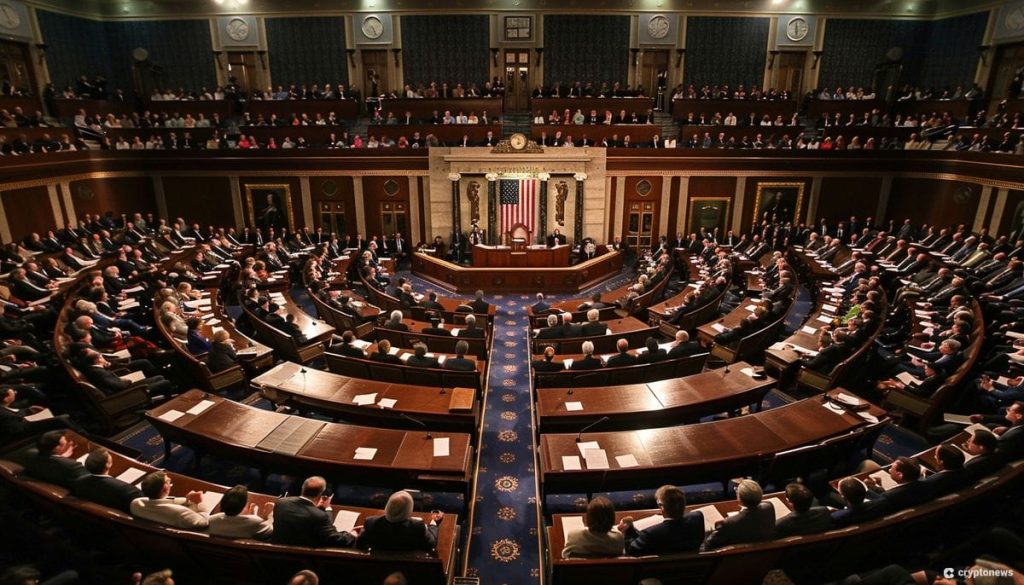The US House has passed the CBDC Anti-Surveillance State Act (HR 5403), which prohibits the Federal Reserve from issuing a digital dollar without explicit authorization from Congress. The bill passed with a vote of 216 to 192, with Republicans expressing concerns about potential government control over citizens’ finances through a central bank digital currency (CBDC). House Majority Whip Tom Emmer introduced the legislation, arguing that a digital dollar could be used as a surveillance tool by the government to track transactions and potentially restrict activities deemed politically undesirable. Former President Trump has also strongly opposed a CBDC, vowing to block its creation if re-elected.
The passing of the CBDC Anti-Surveillance State Act reflects ongoing concerns among Republicans about potential government overreach with a digital dollar. The bill aims to prevent the federal government from having absolute control over individuals’ money and transactions. The American Bankers Association (ABA) has supported the bill, urging House leaders to back it. The House vote marks a significant difference from a prior floor vote, where the Financial Innovation and Technology for the 21st Century Act (FIT21) was passed, focusing on a fresh crypto market structure and granting more authority to regulatory bodies like the US Commodity Futures Trading Commission and the Securities and Exchange Commission.
The passing of the FIT21 bill on crypto market regulation is seen as a significant victory for the industry, as it is the first time a bill solely focused on crypto has been passed in the House. However, challenges remain as the bill needs a companion version for the Senate and may face opposition from critics like Senator Elizabeth Warren. Alan Mittleman, COO of Secure Digital Markets, highlighted the need for more consumer protections in FIT21 to address concerns raised by President Joe Biden. While Biden has not threatened a veto, further revisions may be necessary for the bill to progress through the legislative process and become law.
The passage of the CBDC Anti-Surveillance State Act and FIT21 bill in the House has sparked debates about government control, surveillance, and consumer protections in the crypto industry. Concerns about potential authoritarian use of a digital dollar and the need for comprehensive regulations to safeguard consumers and investors have been raised. The bills’ journeys through the legislative process will likely involve further revisions, negotiations, and potential debates among lawmakers. The industry’s reaction to these bills indicates a growing awareness of the importance of regulatory frameworks and safeguards in the rapidly evolving crypto market.


